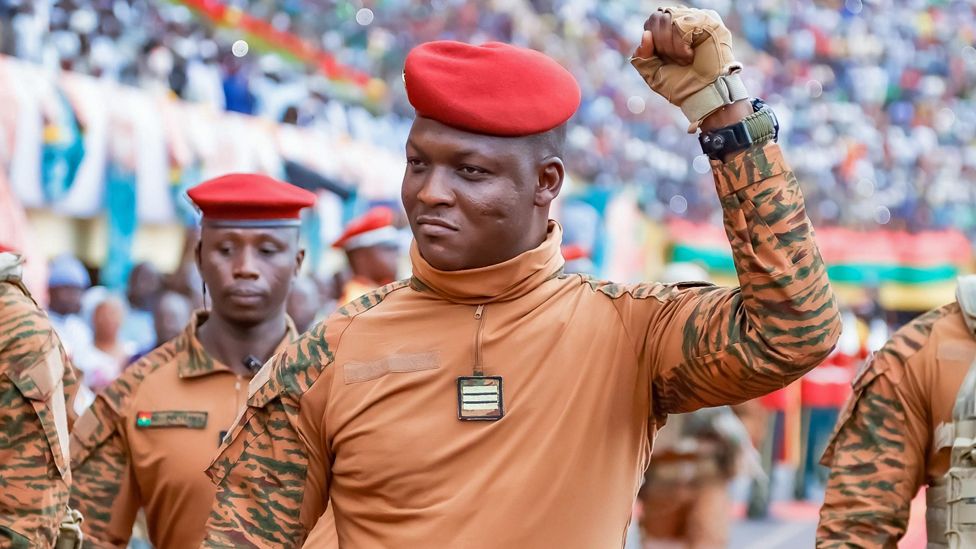The Rise of Capt Ibrahim Traoré: A New Pan-African Icon
Capt Ibrahim Traoré, a dynamic 37-year-old military leader of Burkina Faso, has been captivating audiences across Africa and beyond with his compelling vision for a liberated continent. Emerging as a charismatic figure, Traoré is positioning himself as a champion of pan-Africanism, advocating for a break from Western dominance and neo-colonialism.
Many view Traoré as a successor to celebrated African leaders such as Thomas Sankara, a revolutionary known for his principled approach and radical reforms in the 1980s. Beverly Ochieng, a senior researcher at Control Risks, highlighted Traoré’s broad appeal, noting, “His messages resonate deeply with those questioning the existing power dynamics that leave resource-rich nations in poverty.”
Post-Coup Policies
Since rising to power in a coup in 2022, Traoré’s administration has shifted allegiances away from France, the former colonial power, and has sought closer ties with Russia. This pivot includes the arrival of Russian paramilitary forces and the implementation of leftist economic strategies aimed at redistributing wealth from Burkina Faso’s natural resources.
- Creation of a state-owned mining company.
- Mandate for foreign firms to cede a 15% stake in local operations.
- Introduction of a national gold refinery and reserves.
These measures are part of what Traoré describes as a “revolution” to ensure that the nation’s wealth is utilized for the benefit of its citizens. However, this has led to tensions with Western companies, highlighted by Sarama Resources initiating arbitration against the junta after losing a license for exploration.
| Policy Initiative | Description |
|---|---|
| State-owned Mining Company | Establishment to control mineral resources. |
| 15% Stake Mandate | Requirement for foreign firms operating in Burkina Faso. |
| Gold Refinery Construction | First national refinery to process local gold. |
International Reach and Popularity
Traoré’s popularity has soared due in part to his effective use of social media, where he has garnered support not only within Africa but also among diasporic communities in the United States and the United Kingdom. His potent rhetoric against Western influence resonates with many who have faced historical injustices, as indicated by support from celebrities and politicians alike.
Despite the international accolades, Traoré faces significant challenges, including an ongoing Islamist insurgency that has exacerbated internal strife. His government has been criticized for suppressing dissent, a move that puts into question the democratic ideals he claims to uphold. Nevertheless, many young people in Burkina Faso view him as a leader of hope in a time of despair.
Future Implications
Analysts point to a shift in political sentiment across African nations, with a growing disillusionment toward traditional democratic frameworks. Capt Traoré’s approach reflects this change, providing a vision that appeals to a largely young population eager for transformation and progress.
As Burkina Faso navigates turbulent waters, the legacy of Capt Ibrahim Traoré remains to be seen. His ability to balance populist sentiment with effective governance will ultimately determine whether he solidifies his place as a visionary leader or faces backlash for his controversial methods.

